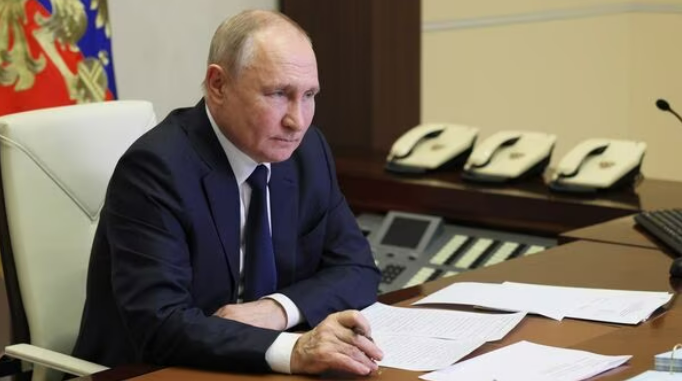The tumultuous theater of the Ukraine conflict, Russia finds itself in a tight spot, grappling with the repercussions of a protracted war. Desperate times call for desperate measures, and Moscow has turned its gaze towards former defense allies in a bid to rejuvenate its military arsenal. One noteworthy contender in this high-stakes diplomatic dance is none other than Pakistan, a country that has long been a customer for Russian military hardware.
The crux of the matter lies in Russia’s plea to Pakistan for the return of helicopter engines, a critical component for the well-known Mi-35M helicopters that have been actively deployed in the Ukrainian conflict theater. According to reports from the Wall Street Journal, Moscow has reached out to Islamabad with a request that could potentially have significant implications for both nations.
The Mi-35M helicopters, renowned for their versatility and combat prowess, have become indispensable assets for Russia in the ongoing conflict. As the demand for operational tempo from these rotary-wing aircraft continues to soar in Ukraine, the urgency with which Russia is seeking the return of these essential helicopter engines underscores the broader challenges the nation faces in maintaining its military supply lines.
Interestingly, the Pakistani Foreign Ministry has promptly dismissed any claims of such a request from Russia. This denial adds a layer of intrigue to the situation, raising questions about the dynamics of international alliances and the subtle dance of diplomacy amidst the chaos of conflict.
Russia’s plea to Pakistan for military support sheds light on the larger trend observed in its engagement with other nations like Egypt and Belarus. Moscow seems to be navigating uncharted waters, attempting to bolster its armed forces with equipment that has already seen action. This strategic move, as highlighted by the Wall Street Journal, marks a distinct shift in Russia’s approach to sustaining its military might in the face of unforeseen challenges.
Meanwhile, the conflict’s ripple effects extend beyond mere military transactions, with Ukraine’s intelligence agency claiming responsibility for a car bombing on November 8. The target, Mikhail Filiponenko, a member of the Russia-backed authority in the Luhansk region, met his demise in a tragic incident that local officials attribute to Ukraine’s intelligence agency.
Filiponenko’s death serves as a poignant reminder of the human cost of this geopolitical chess game. His journey from chief of police to a member of the local assembly and, ultimately, a victim of targeted violence paints a vivid picture of the personal toll exacted by the ongoing conflict.
As the Ukraine conflict continues to unfold, the helicopter engines’ saga adds an intriguing chapter to the narrative. Russia’s diplomatic maneuvers, the denial from Pakistan, and the tragic events on the ground collectively form a complex tapestry that reflects the intricate interplay between nations in times of crisis. The world watches, curious and concerned, as the drama unfolds in the volatile landscape of international relations.


